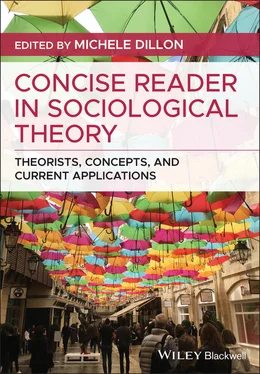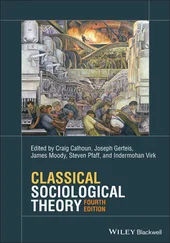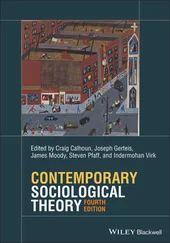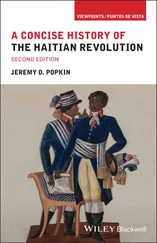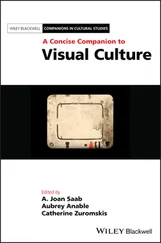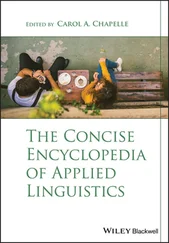The observer must have sympathy; and his sympathy must be untrammeled and unreserved. If a traveler be a geological inquirer he may have a heart as hard as the rocks he shivers, and yet succeed in his immediate objects … if he be a statistical investigator he may be as abstract as a column of figures, and yet learn what he wants to know: but an observer of morals and manners will be liable to deception at every turn, if he does not find his way to hearts and minds.
(Martineau 1838: 52)
As sociology became further established in the mid‐to‐late nineteenth century it did so amid major societal changes, propelled by industrial capitalism, factory production, the expansion of manufacturing and of railroads, increased urbanization, mass immigration of Irish, Italian, Swedish, German, Polish, and other European individuals and families to the US, the bolstering of democratic institutions and procedures (e.g. voting rights), nation‐building, and mass‐circulating newspapers. Living in a time swirling with change, sociology’s founders were thus well situated to observe and to recognize how large‐scale, macro societal forces take hold, interpenetrate, and structure institutional processes, community, and the organization of everyday life, as well as to ponder the relationship of the individual to society.
This Reader presents a selection of key excerpts from major writings in sociological theory, the classics from the foundations of the discipline to contemporary approaches. As with all disciplines, the classics are so defined not merely because they originated in a different time, but precisely because they contain the essential points or concepts that have endured through a long swath of time and have proven resilient in their explanatory relevance of the dynamic complexity of society even, or especially, amid its many ongoing patterns of change. Sociology, as a social science, is an empirical discipline; this means that sociologists are interested in and committed to knowing the truth about reality – how things actually are and why they are as they are, rather than how ideally they ought to be. Consequently, sociologists embrace scientific method as a way of studying the social world and accept the objective facticity of (properly gathered) data. Sociologists use both qualitative (e.g. ethnographic description, interview and blog transcripts, historical documents) and quantitative (e.g. surveys, census data) data‐gathering methods, and in using data they tend to lean either toward investigating the relationship between a number of macro‐level variables (e.g. education, crime, income inequality, gender) or focusing on how individuals in a particular micro‐context and small groups or communities carve meaning into and make sense of their lives. Regardless of the research method(s) chosen (a decision made based on the specific research question motivating the sociologist’s empirical study), sociologists do not and cannot let the resulting data stand on their own. Data always need to be interpreted. And this is why sociological theory is so important. Theory provides the ideas or concepts that sensitize sociologists about what to think about – what questions to ask about the social world and how it is structured and with what consequences – and theory is equally fundamental in helping sociologists make sense of what they find in their actual research, both of what they might have (empirically or theoretically) expected to find but also of the unexpected. As such, sociological theory is the vocabulary sociologists use to anchor and interpret empirical data about any aspect of society, and to drive the ongoing, back‐and‐forth conversation between theory and data. This, necessarily, given the dynamic nature of social life, is always an energetic and dynamic dialogue. Sociological theory does not exist for the sake of theory, but for the sake of sociological understanding and explanation of the multilayered empirical reality in any given sociohistorical context.
This Reader is organized into five sections. Each section includes excerpts from a core set of theorists, and I provide a short commentary or introduction prior to each specific theorist or to a cluster of theorists in the given section. The Reader begins with a lengthy first section with excerpts from sociology’s classical theorists: Karl Marx( chapter 1), Emile Durkheim( chapter 2), and Max Weber( chapter 3). These three dominant theorists largely comprise the foundational canon of sociology; their respective conceptual contributions have well withstood the test of time despite, from the hindsight of our contemporary experience, some notable silences in their writings with respect to, for example, sexuality and a limited discussion of the significance of gender and race.
The classical tradition was largely introduced to English‐speaking audiences by the towering American social theorist, Talcott Parsons. The excerpts in section II comprise an amalgam representing Parsons’s theorizing, generally referred to as structural functionalism , and different theoretical perspectives that it, in turn, gave rise to based on specific critiques of some of Parsons’s emphases. I briefly introduce Parsons’s ideas (in chapter 4) but because much of his writing is quite dense I do not include an excerpt from him but instead an excerpt from his student and renowned fellow‐theorist Robert K. Merton, exemplifying the structural functionalist perspective. Parsons was famously concerned with how values consensus translated into the social roles and social institutions functional to maintain social order. Countering this focus, conflict theory, exemplified by Ralf Dahrendorf, highlighted the normalcy and functionality of conflict (as opposed to consensus) in society. From a different context, critiquing Parsons’s focus on American society as the paradigm of modernization, neo‐Marxist dependency theorists including Fernando Henrique Cardosoand Enzo Falettohighlighted the conflicting power interests between the West and Latin America, and within Latin American countries dependent on the US ( chapter 5). Still other theorists pushed back against Parsons’s main focus on macro structures and what they saw as his diminishment of the individual (even though Parsons affirmed the relevance of the individual as a motivated social actor). With a micro focus on individuals and small groups ( chapter 6), this line of critique was spearheaded by another student of Parsons, George Homans. Contrary to Parsons, he emphasized the core centrality of the individual and of individual interpersonal interaction or exchange as the foundational basis of all institutional and societal life. Homans’s student, Peter M. Blau, took a broader, more sociological view than Homans and elaborated on how power and status in particular interpersonal contexts are conveyed through, and result from, social exchange relations. Another theorist, James S. Coleman, adopted Parsons’s focus on shared societal values to focus on the functionality of trust to the accumulation of human and social capital in interpersonal and small group settings. Decades later, writing with a focus on a different set of questions – sexuality and gender in contemporary American society – Paula Englandelaborates on the relation between personal characteristics (skills/human capital, values) and social identity or social position to show the dynamic interaction between individuals’ personal characteristics and social position in accounting for variation in individual decision‐making outcomes.
Section III includes what are generally seen as the three most prominent micro‐level perspectives in sociological theory: (1) symbolic interactionism which, building on George H. Mead’s theorizing on the self and elaborated by Erving Goffman, focuses on the micro‐dynamics of face‐to‐face or interpersonal interaction ( chapter 7); (2) phenomenology which establishes credibility for the relevance of the individual’s subjective experiences of the social world and for the individual’s intra‐subjective reality, a perspective outlined by Alfred Schutz and elaborated by Peter L. Bergerand Thomas Luckmannin their widely influential book, The Social Construction of Reality ( chapter 8); and (3) ethnomethodology which focuses on how individuals actually do the work of being members of a society in particular localized settings; its framing is indebted to Harold Garfinkeland subsequently further applied to gender issues by Sarah Fenstermakerand Candace West( chapter 9). It is important to note here, however, that though largely micro in their focus, each of these theories (and especially phenomenology) also variously point to the significance of macro structures, the dynamic interrelation of macro and micro social processes, and to the fact that the self is always necessarily in conversation with society, and is so at once both at a micro‐ and macro‐level.
Читать дальше
